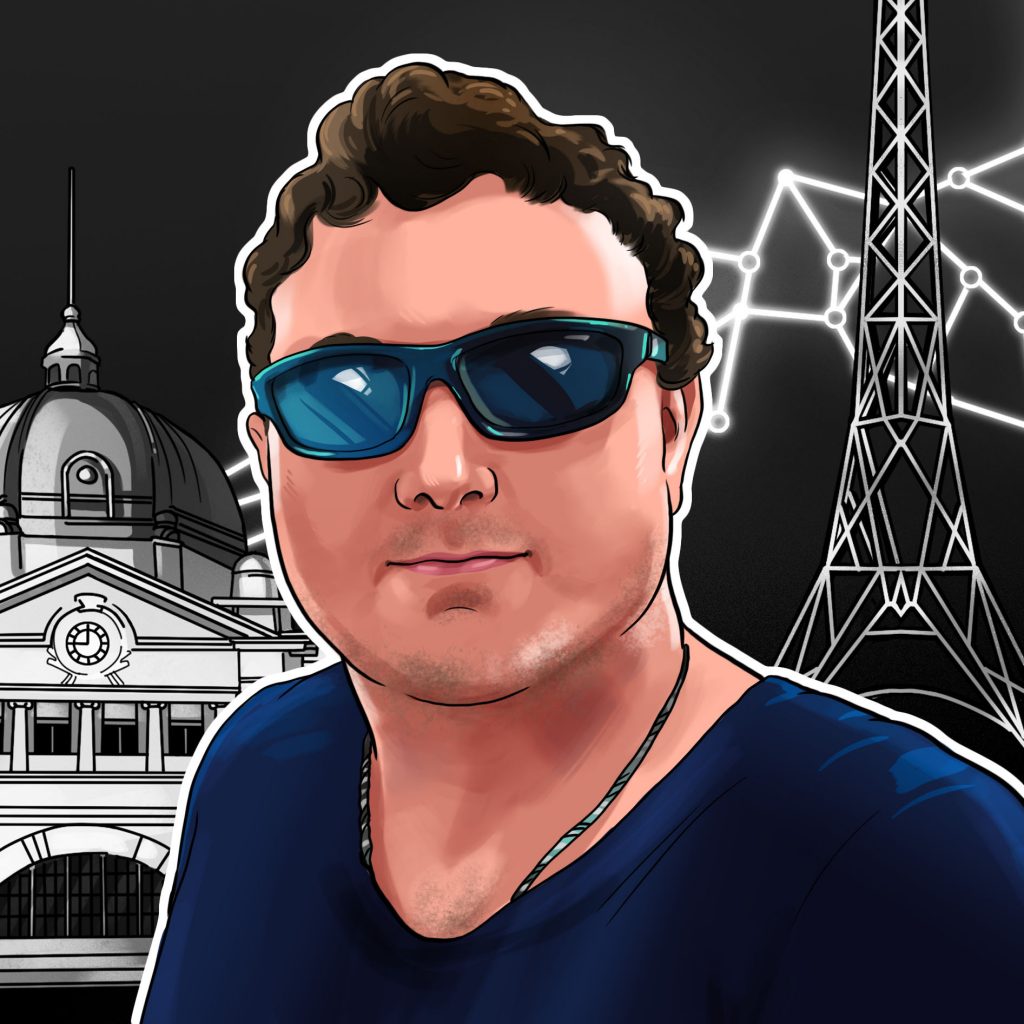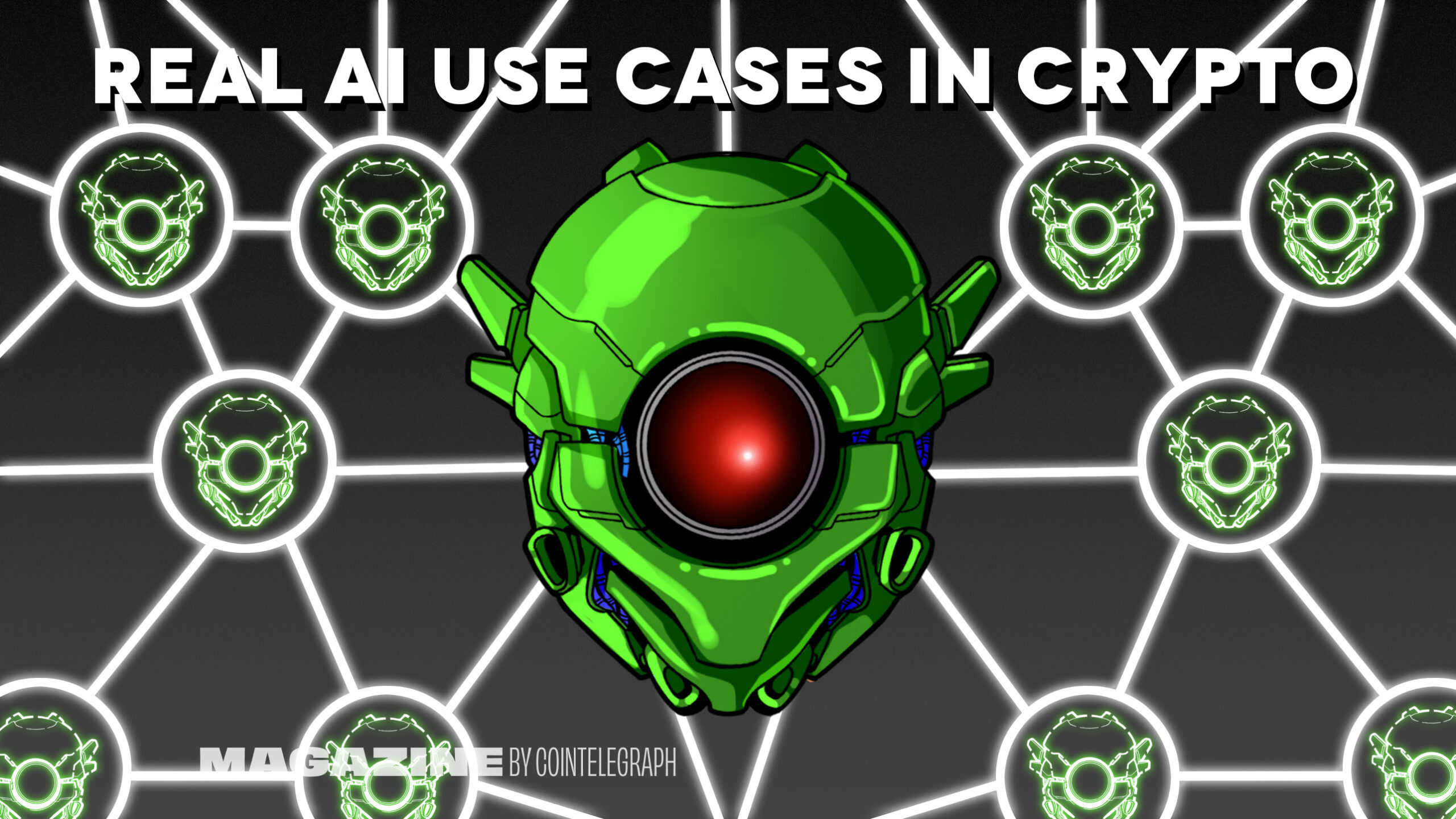[ad_1]
For every genuine blockchain project harnessing artificial intelligence there are 100 coins trading off the hype.
Magazine spoke with Near founder Illia Polosukhin, Framework Ventures founder Vance Spencer, MakerDAO founder Rune Christensen, Richard Ma from Quantstamp, Ralf Kubli from Casper and others to explore some of the key hype-free, genuine use cases for AI in crypto and blockchain.
We’re rolling out one genuine use case for AI in crypto each day this week — including reasons why you shouldn’t necessarily believe the hype.
AIs can help run DAOs

Decentralized autonomous organizations, as they exist today, are something of a fraud. As Framework Ventures founder Vance Spencer points out, they are “not actually autonomous. There’s a bunch of people in the middle.“
“It just seems like AI is really our only way to actually make the DAO concept work,” he says.
Given LLMs hallucinate between 3% to 27% of their output at present, the technology is too immature to run a DAO by itself or to enforce governance rules, says Maker founder Rune Christensen. Nevertheless, he’s mapped out an ambitious plan for AIs to help run MakerDAO and its forthcoming subDAOs in his Endgame manifesto.
“People misunderstand what we mean with AI governance, right? We’re not talking about AI running a DAO,” he says.
“What AI is so great at, is replacing the most soul numbing, dumbest part of the work.”
One of the big difficulties with DAOs is that it’s very difficult for members dispersed around the globe to understand what everyone else is doing and for tokenholders to understand the issues in the DAO well enough to cast an informed vote.

Near founder Illia Polushkin — an expert in both AI and blockchain — explains that AIs really shine when it comes to monitoring what’s going on and then summarizing and communicating that information effectively.
“In a way, that’s a manager’s job,” he says. “They know exactly what’s happening and they communicate to everyone exactly the part you need to know, as well as broader context about what’s happening.”
Images like these showing LLMs replacing humans in org charts of companies is where fear of AI comes from.
This was probably created as a joke, but many believe AI is very close to completely replacing them and their management!
This is factually not true.
There is near zero… pic.twitter.com/YnowscSGGl
— Bindu Reddy (@bindureddy) November 14, 2023
He says AI can scale up to work with thousands of people, onboard new DAO members, manage logistics and coordinate everyone’s tasks.
The broader direction of the DAO can still be set by the community, likely via an elected board of directors.
“It can still be overseen by the community, they can provide feedback and decide on what are the goals for the DAO.”
Read also
Features
Championing Blockchain Education in Africa: Women Leading the Bitcoin Cause
Features
This is how to make — and lose — a fortune with NFTs
The Near future… of AI-assisted DAO
Polushkin says the Near Foundation plans to experiment with the use of AI to coordinate smaller tasks before graduating to more complex and important jobs. The hope is that eventually, the AI will be able to handle the day to day management.
“I think the role of me and other folks in the system should be replaced in many ways, right?” Polushkin says.
“You know, we can still come up with ideas, but I think the coordination of all the functions (can be handled by AI).”
Members of the Near community have already experimented with building an AI that can autonomously decide which projects to support with funding, based on whether it believes a proposal satisfies the grant program criteria, and then automatically fund it from the treasury.
Maker’s AI Atlas
Maker’s approach will be to use various forms of AI tools — called Governance Artificial Intelligence Tools (GAITs) — as a guide to the entire project. It’s currently undertaking the mammoth task of cataloging in a formalized dataset what’s going on, who is doing what, along with all the rules that govern the workings of the DAO and everything that Maker has ever done. They’re calling the dataset “Atlas,” as it will give a global overview of the entire project — and it will be updated in real-time.
“Having that sort of central repository of data just makes it actually realistic to have hundreds of thousands of people from different backgrounds and different levels of understanding meaningfully collaborate and interact because they’ve got this shared language.”
Community members can use GAITs to find and bid on projects, with the AI providing instant feedback on whether a proposal fits within the guidelines, overarching aims and budget. The ability to instantly translate between languages will help communicate better with community members based in different parts of the globe.

Fullblown AI-assisted DAO governance is unlikely to be ready for the launch of Maker’s four new subDAOs in early 2024, but Christensen sees huge potential in the future.
“The AI strategy just changes how many humans you need in order to have a successful DAO,” he says.
“It’s possible that once you really get AI-assisted governance to a level of maturity, you may have a lot more DAOs than you have humans.”
You can read more on what Maker is up to here.
Read also
Features
You can now clone NFTs as ‘Mimics’: Here’s what that means
Features
Andy Warhol would have loved (or possibly hated) NFTs
Don’t believe the hype
AI is already a useful tool for DAOs, but it will be a long time before AI will be mature enough to actually run DAOs.
Given the fierce politics in DAOs (often around who gets funding) there will a temptation to outsource decision-making to an “unbiased AI,” but this is not possible with any degree of confidence yet, given the state of the technology.
The current generation of LLMs hallucinate their answers at least 3% of the time, making them an unreliable guide to DAO governance and could see them potentially steering community members down the wrong path while attempting to coordinate them.
Given this unreliability, it’ll be a long time before you’d trust one with the keys to your treasury without strict guidelines and spending caps to mitigate any errors.
Also read
Real AI use cases in crypto, No. 1: The best money for AI is crypto
Real AI use cases in crypto, No. 3: Smart contract audits & cybersecurity
Real AI & crypto use cases, No. 4: Fighting AI fakes with blockchain
Subscribe
The most engaging reads in blockchain. Delivered once a
week.


Andrew Fenton
Based in Melbourne, Andrew Fenton is a journalist and editor covering cryptocurrency and blockchain. He has worked as a national entertainment writer for News Corp Australia, on SA Weekend as a film journalist, and at The Melbourne Weekly.
[ad_2]
Source link


